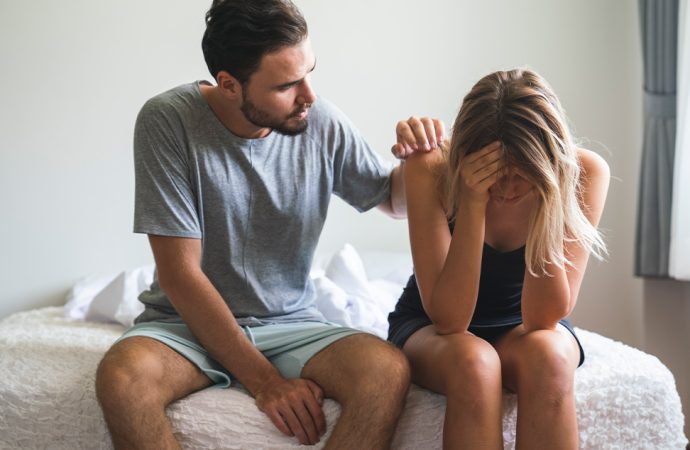Introduction: Embarking on a journey into the intersection of intimacy and insulin, we delve into a topic seldom discussed but profoundly impactful—low blood sugar after sex. In this exploration, we seek to unravel the mysteries surrounding this phenomenon, offering insights, understanding, and actionable tips for those navigating the delicate dance between romance and health. The
Introduction:
Embarking on a journey into the intersection of intimacy and insulin, we delve into a topic seldom discussed but profoundly impactful—low blood sugar after sex. In this exploration, we seek to unravel the mysteries surrounding this phenomenon, offering insights, understanding, and actionable tips for those navigating the delicate dance between romance and health.
The Physiology of Post-Coital Blood Sugar:
To comprehend the intricacies of low blood sugar after intimacy, it’s crucial to understand the physiological responses that accompany sexual activity. Sexual engagement is a complex interplay of physical and emotional factors, triggering hormonal fluctuations and metabolic shifts. These changes, in turn, can influence blood sugar levels, often leading to a post-coital drop.

Image by: https://www.reddit.com/r/CouplesFirstAid/comments/zycpar/8_quiet_sex_positions_to_try_when_youre_being/?rdt=58331
The Role of Hormones in Post-Sex Blood Sugar:
Hormones, the messengers orchestrating the symphony of intimacy, also play a role in blood sugar regulation. Oxytocin, the bonding hormone, and cortisol, the stress hormone, are key players during and after sex. Understanding how these hormones influence insulin sensitivity sheds light on why some individuals experience a noticeable drop in blood sugar levels post-coitus.
Emotional and Physical Exertion: A Balancing Act:
Sexual activity is a harmonious blend of emotional connection and physical exertion. The emotional intensity and psychological aspects of intimacy can impact blood sugar regulation. Simultaneously, the physical exertion involved can lead to significant energy expenditure. Balancing these factors becomes crucial in comprehending why some individuals may face a sudden dip in blood sugar levels after moments of intimacy.
Informative Table: Causes of Low Blood Sugar After Sex:
| Cause | Explanation |
|---|---|
| Hormonal Fluctuations | Changes in oxytocin, cortisol, and other hormones affecting insulin sensitivity |
| Physical Exertion | Energy expenditure during sex leading to a potential drop in blood sugar |
| Emotional Intensity | The emotional and psychological impact on blood sugar regulation |
| Medication Effects | Influence of certain medications on insulin levels |
| Individual Variability | How factors like age, fitness, and overall health can contribute |
Navigating Low Blood Sugar: Practical Tips:
Arming ourselves with knowledge is the first step, but this section takes it a step further by providing practical tips for navigating low blood sugar after sex. Consuming a pre-intimacy snack can help stabilize blood sugar levels, acting as a preventive measure. Post-coital, opt for a balanced snack that includes both carbohydrates and proteins, replenishing energy without causing a spike or crash. It’s a delicate balance that, once understood, empowers individuals to maintain optimal blood sugar levels without compromising the intimate connection.
Communicating with Your Partner:
Open communication about health-related concerns is crucial in any relationship. When it comes to navigating low blood sugar after sex, partners can engage in constructive conversations about individual needs and experiences. Expressing concerns, setting expectations, and fostering a supportive environment can significantly contribute to a more understanding and accommodating post-coital atmosphere.
Expert Insights: Q&A with a Healthcare Professional:
Gain further understanding and insights through a Q&A session with a healthcare professional specializing in endocrinology or sexual health. Addressing common concerns such as the impact of specific medications on insulin levels or the role of age and fitness in blood sugar regulation, this section serves as a valuable resource for readers seeking more in-depth knowledge and personalized guidance.
Conclusion:
As we navigate the often-overlooked territory of low blood sugar after sex, it becomes evident that addressing this aspect of post-coital health is not just about understanding the physiological intricacies but also about fostering open communication and embracing proactive measures. The delicate dance between intimacy and insulin requires a nuanced approach—one that recognizes the unique interplay of hormones, emotions, and physical exertion.
By unraveling the causes, understanding the physiological responses, and implementing practical tips, individuals and couples can embark on a journey towards a healthier, more informed approach to post-coital well-being. Let this exploration serve as a guide, empowering you to navigate the intersection of intimacy and insulin with knowledge, communication, and a commitment to holistic health. In the end, it’s about fostering a connection that not only enriches your emotional bond but also supports your physical well-being.

















Leave a Comment
Your email address will not be published. Required fields are marked with *